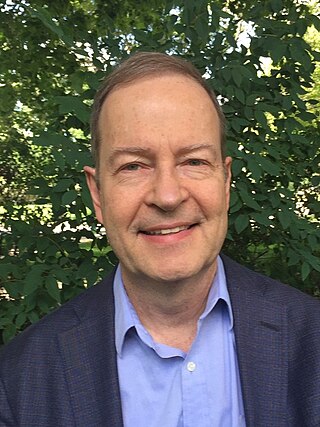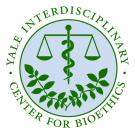Bioethics is both a field of study and professional practice, interested in ethical issues related to health, including those emerging from advances in biology, medicine, and technologies. It proposes the discussion about moral discernment in society and it is often related to medical policy and practice, but also to broader questions as environment, well-being and public health. Bioethics is concerned with the ethical questions that arise in the relationships among life sciences, biotechnology, medicine, politics, law, theology and philosophy. It includes the study of values relating to primary care, other branches of medicine, ethical education in science, animal, and environmental ethics, and public health.

Arthur L. Caplan is an American ethicist and professor of bioethics at New York University Grossman School of Medicine.

Harold Tafler Shapiro is an economist and university administrator. He is currently a professor of economics and public affairs at the Princeton School of Public and International Affairs at Princeton University. Shapiro served as the president of University of Michigan from 1980 to 1988 and as the president of Princeton University from 1988 to 2001.
Joseph J. Fins, M.D., D. Hum. Litt., M.A.C.P., F.R.C.P. is an American physician and medical ethicist. He is chief of the Division of Medical Ethics at New York Presbyterian Hospital and Weill Cornell Medical College, where he serves as The E. William Davis Jr., M.D. Professor of Medical Ethics, and Professor of Medicine, Professor of Public Health, and Professor of Medicine in Psychiatry. Fins is also Director of Medical Ethics and an attending physician at New York Presbyterian Hospital-Weill Cornell Medical Center. Fins is also a member of the adjunct faculty of Rockefeller University and has served as Associate for Medicine at The Hastings Center. He is the Solomon Center Distinguished Scholar in Medicine, Bioethics and the Law and a Visiting Professor of Law at Yale Law School. He was appointed by President Bill Clinton to The White House Commission on Complementary and Alternative Medicine Policy and currently serves on The New York State Task Force on Life and the Law by gubernatorial appointment.

The Hastings Center is an independent, nonpartisan bioethics research institute and think tank based in Garrison, New York. It was instrumental in establishing the field of bioethics and is among the most prestigious bioethics and health policy institutes in the world.
Barry R. Schaller (1938–2017) was an associate justice of the Connecticut Supreme Court from 2007 to 2008. He served as a judge of the Connecticut Appellate Court from 1992 to 2007. Before that, he was a trial court judge in Connecticut for 18 years. A graduate of Yale University and the Yale Law School, he was a visiting lecturer in public policy at Trinity College where he taught bioethics, public health law and ethics, health policy, and public policy and law. He was a clinical visiting lecturer at the Yale Law School, where he taught appellate practice and procedure. He also had appointments as visiting lecturer at Wesleyan University, where he taught bioethics and public health law, ethics and policy, and at the University of Connecticut School of Public Health. Justice Schaller also taught an appellate advocacy class at Yale Law School, focusing on Connecticut appellate procedure. Justice Schaller was a former chair of the Connecticut Board of Pardons, a charter life member of the Connecticut Bar Foundation, a member of the American Law Institute, and Chair of the Connecticut Judicial Ethics Advisory Committee. In May, 2008, he was awarded an honorary Doctor of Laws degree by Quinnipiac University School of Law.
James Franklin Childress is a philosopher and theologian whose scholarship addresses ethics, particularly biomedical ethics. Currently he is the John Allen Hollingsworth Professor of Ethics at the Department of Religious Studies at the University of Virginia and teaches public Policy at the Frank Batten School of Leadership and Public Policy. He is also Professor of Medical Education at this university and directs its Institute for Practical Ethics and Public Life. He holds a B.A. from Guilford College, a B.D. from Yale Divinity School, and an M.A. and Ph.D. from Yale University. He was vice-chairman of the national Task Force on Organ Transplantation, and he has also served on the board of directors of the United Network for Organ Sharing (UNOS), the UNOS Ethics Committee, the Recombinant DNA Advisory Committee, the Human Gene Therapy Subcommittee, the Biomedical Ethics Advisory Committee, and several Data and Safety Monitoring Boards for NIH clinical trials. From 1996 to 2001, he served on the presidentially-appointed National Bioethics Advisory Commission. He is a fellow of the Hastings Center, an independent bioethics research institution.
Albert R. Jonsen was one of the founders of the field of Bioethics. He was Emeritus Professor of Ethics in Medicine at the University of Washington, School of Medicine, where he was Chairman of the Department of Medical History and Ethics from 1987 to 1999. After retiring from UW, he returned to San Francisco, where he co-founded the Program in Medicine and Human Values at Sutter Health's California Pacific Medical Center in 2003.

Daniel Isaac Wikler is an American public health educator, philosopher, and medical ethicist. He is currently the Mary B. Saltonstall Professor of Population Ethics and Professor of Ethics and Population Health in the Department of Global Health and Population of the Harvard T.H. Chan School of Public Health in Boston. He is Director and a core faculty member in the Harvard Program in Ethics and Health (PEH). His current research interests are ethical issues in population and international health, including the allocation of health resources, health research involving human subjects, organ transplant ethics, and ethical dilemmas arising in public health practice, and he teaches several courses each year. He is a fellow of the Hastings Center, an independent bioethics research institution.
Jonathan D. Moreno is an American philosopher and historian who specializes in the intersection of bioethics, culture, science, and national security, and has published seminal works on the history, sociology and politics of biology and medicine. He is an elected member of the National Academy of Medicine.

Daniel John Callahan was an American philosopher who played a leading role in developing the field of biomedical ethics as co-founder of The Hastings Center, the world's first bioethics research institute. He served as the Director of The Hastings Center from 1969 to 1983, president from 1984 to 1996, and president emeritus from 1996 to 2019. He was the author or editor of 47 books.
David DeGrazia is an American moral philosopher specializing in bioethics and animal ethics. He is Professor of Philosophy at George Washington University, where he has taught since 1989, and the author or editor of several books on ethics, including Taking Animals Seriously: Mental Life and Moral Status (1996), Human Identity and Bioethics (2005), and Creation Ethics: Reproduction, Genetics, and Quality of Life (2012).

Mildred Z. Solomon is an American bioethics researcher.

S. Matthew Liao is an American philosopher specializing in bioethics and normative ethics. He is internationally known for his work on topics including children’s rights and human rights, novel reproductive technologies, neuroethics, and the ethics of artificial intelligence. Liao currently holds the Arthur Zitrin Chair of Bioethics, and is the Director of the Center for Bioethics and Affiliated Professor in the Department of Philosophy at New York University. He has previously held appointments at Oxford, Johns Hopkins, Georgetown, and Princeton.
Nenad Šestan is Harvey and Kate Cushing Professor of Neuroscience and professor of comparative medicine, genetics and psychiatry at the Yale School of Medicine. He received his MD from the School of Medicine, University of Zagreb in 1995 and his PhD from Yale School of Medicine in 1999.

John F. Kilner is a bioethicist who held the Franklin and Dorothy Forman endowed chair in ethics and theology at Trinity International University, where he was also Professor of Bioethics and Contemporary Culture and Director of Bioethics Degree Programs. He is a Senior Fellow at The Center for Bioethics & Human Dignity (CBHD) in Deerfield, Illinois, where he served as Founding Director until Fall 2005.

Wendell Wallach is a bioethicist and author focused on the ethics and governance of emerging technologies, in particular artificial intelligence and neuroscience. He is a scholar at Yale University's Interdisciplinary Center for Bioethics, a senior advisor to The Hastings Center, a Carnegie/Uehiro Senior Fellow at the Carnegie Council for Ethics in International Affairs, where he co-directs the "Artificial Intelligence Equality Initiative" with Anja Kaspersen. Wendell Wallach is also a fellow at the Center for Law and Innovation at the Sandra Day O'Connor School of Law at Arizona State University. He has written two books on the ethics of emerging technologies.: "Moral Machines: Teaching Robots Right from Wrong" (2010) and "A Dangerous Master: How to Keep Technology from Slipping Beyond Our Control" (2015). Wallach speaks eloquently about his professional, personal and spiritual journey, as well as some of the biggest conundrums facing humanity at the wake of the bio/digital revolution in this podcast published by the Carnegie Council for Ethics in International Affairs (CCEIA).
Joel Michael Reynolds is an American philosopher whose research focuses on disability. His areas of specialization include Philosophy of Disability, Bioethics, Continental Philosophy, and Social Epistemology. He is an assistant professor of Philosophy and Disability Studies in the Department of Philosophy at Georgetown University, a Senior Research Scholar at the Kennedy Institute of Ethics, a senior bioethics advisor to The Hastings Center, and core faculty in Georgetown's Disability Studies Program. In 2022, he was named a Faculty Scholar of The Greenwall Foundation in support of his project “Addressing the Roots of Disability Health Disparities." He is the founder of the Journal of Philosophy of Disability, which he edits with Teresa Blankmeyer Burke, and co-founder of Oxford Studies in Disability, Ethics, & Society, a book series from Oxford University Press which he edits with Rosemarie Garland-Thomson.









